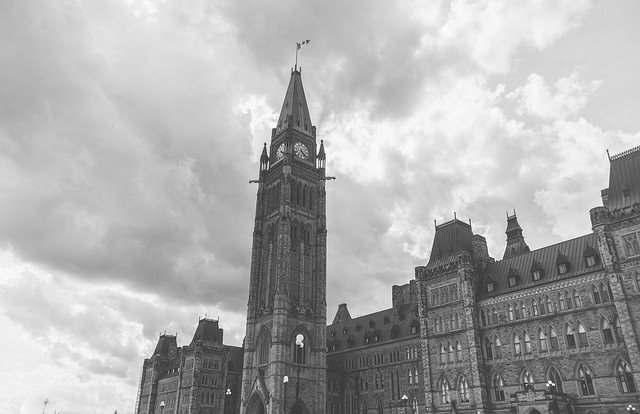Like this article? rabble is reader-supported journalism. Chip in to keep stories like these coming.
Russell Means, the late Oglala Lakota activist and provocative spokesperson for the American Indian Movement, is reputed to have said: “If voting could change anything, they’d make it illegal.” This hard-won wisdom was the result of centuries of brutal education about Eurowestern democracy for Indigenous peoples: for all the claimed benefits of western “civilization” and citizenship, the all-too-common (and continuing) Indigenous reality has been the loss of lands, liberty, languages and lives. And for every Indigenous person who sought the franchise as a way of creating some measure of safety and security within a powerful imposed system, there were others who fought fiercely to maintain the centrality of their own identities and affiliations beyond the U.S. and Canadian nation states.
So I understand why some Indigenous people have decided to not participate in the electoral process, and I respect their principled decision and refuse to shame them for that choice. I also recognize why, given this complicated history and the continuing occupation and assaults on our lands, bodies, relationships, and identities, some of my friends and colleagues have taken a firm stand against explicitly participating in the system.
But I’m going to vote. It was how I was raised, as my parents are now and have always been fierce advocates for exercising the franchise. As a mixed-race, working-class Colorado mining family largely excluded from the processes of social or political power, it’s been one way to try to effect change. (I live outside that context now, but it’s shaped much of who I am today.)
And now as a triple citizen — of the Cherokee Nation, of the U.S., and since 2008, of my adopted home of Canada — I vote every chance I get, from elections for Principal Chief and at-large tribal councillor to U.S. president to municipal, provincial, and federal representatives. Hell, I even vote with my tip money at the local coffee shop, offering my opinion on whether The Addams Family or The Munsters is the better show. (Yes, we take our voting responsibilities very seriously.)
Yet there are many jagged edges. I know too well how the concept of “citizen” has been used both to empower and exclude; it is deeply implicated in the latent and sometimes explicit violence of the settler-state. It also insists on patriotic duty and exploitable economics over familial obligations or commitments to land and lineage.
My status as a citizen is entangled in complex histories, power relationships, and the civic expectations and disunities of these multiple affiliations. In a larger system that’s so distanced from accountability, my vote is undoubtedly part of a deeply flawed and deeply traumatizing system.
Yet ancestors on both sides of my family saw the franchise as not simply a problem but as an opportunity, as a hope for representation and an influence that simply wasn’t otherwise available. Their good faith and deeply considered decisions deserve respect, too.
Russell Means was both correct and incorrect: it does make a difference, and that’s why it’s an ongoing matter of legal and political conflict. Why else would voter suppression be such a growing concern in Canada and the U.S.? If it didn’t matter that brown and black folks and expatriates and other marginalized people can vote, reactionaries wouldn’t be trying so desperately to limit the process.
I treat this as a matter of principled pragmatism, an approach that has deep Indigenous roots alongside active resistance. Like my non-voting friends, I have no faith in the current system, but I’m nevertheless already deeply embedded in that very system — as are all who share these words through disposable computers and hydro systems built with ravaged resources and exploited human labour. Whether we vote or not, there’s no perfect position of righteousness in an inherently compromised system. Every choice comes at a cost.
Given this context, I don’t need the system to be perfect to engage it — indeed, as climate change and poisoned oceans and the plight of environmental refugees demonstrate all too clearly, there’s no way to avoid its impacts in this interconnected world. Whether we engage or not is less the issue than is the how of it.
But the sad truth is that much can and will be irrevocably destroyed and made so much worse if the Tories get another mandate; the other parties might still screw things up, but we know that Harper’s larger vision for Canada is a nightmare for so many vulnerable peoples, for the land, for the cause of justice.
So I’m going to vote, because I believe that there truly is a lesser of evils… and a chance, just maybe, for some good to come out of this mess.
Even so, I understand very well why others can’t do that, and though I choose a different option I’m thankful for them keeping me accountable, for reminding me how much this system has taken from us, and for their insistence that voting can never substitute for the deep and difficult work of social transformation.
Voting, not voting — on their own, neither are enough to change our world. Together, and with commitment to working toward something even better, they just might tip the scales. And while my own vote might not be much, there’s a small but meaningful gap between no difference at all and a possible difference, a possibility that something good might happen if enough of us make that effort.
It’s that chance I’m voting for — the slight glimmer of hope that we might shift the system, even if only slightly, to the good. Perhaps then, with growing momentum, we can push it even further, until we realize something far better, far wiser, and far more generous in its place.
Daniel Heath Justice is a Colorado-born Canadian citizen of the Cherokee Nation, a scholar, and a writer. He lives and works on unceded Musqueam territory.
Photo: flickr/ Antonio Acuña




